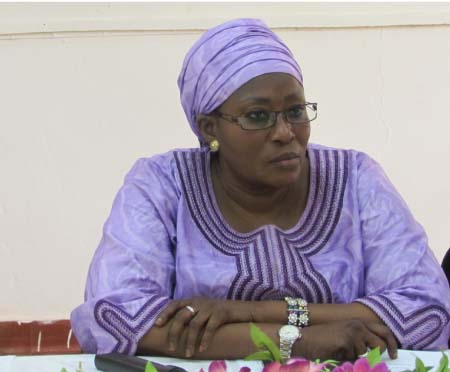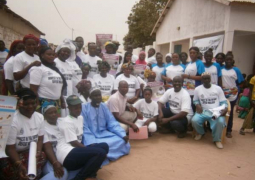
Fatou
Lamin-Faye, Minister of Basic and Secondary Education, said on 6 August 2016 at
the inauguration ceremony of the Farafenni Power Station that the country’s
rural electrification project is aimed at curbing rural-urban migration.
It
would also help the youth to stay and work in their communities so as to
contribute to national development, and avoid congesting in the urban areas.
Minister
Faye also said any development project that does not address the wishes and
aspirations of the people “is as good as a white elephant”.
The
government is a people’s government and its development projects would be
tailored towards addressing the wishes and aspirations of the concerned
communities, she added.
The
people of North Bank Region have always yearned for electricity supply since
the First Republic to no avail, but “the current government has always
considered rural communities to be important constituents of development”,
hence the need to modernize the area in order to allow for maximum exploitation
of rural economic potential, she went on.
The
inauguration of the new project would, therefore, unlock the vast potential of
rural communities and the provision of social infrastructure to rural and urban
areas remains a high priority of the APRC government, she continued.
The
Education minister added that the multiplier effect of electricity supply makes
it an integral service for government as it stimulates other sectors of the
economy.
The
government also envisaged that its food self-sufficiency drive would be hugely
boosted with these amenities, as it would attract well trained agriculturalists
to the region, as well as enhance their commercial agricultural initiatives in
terms of storage and processing.
The
government would also continue to explore other alternative cheaper means of
producing electricity through the renewable energy initiatives.
“This
is with a view to ensuring the affordability of electricity to the average
Gambian,” she added.
The
government through the ministry of Energy and NAWEC, is participating in
numerous regional efforts with a view to accessing alternative means of
producing electricity,
The government would also continue to provide
the enabling environment for private sector investment through independent
power producers (IPPs) and PPPs on a win-win basis, she added.
Minister
Faye called on the people of North Bank Region to ensure the infrastructure
installed is properly maintained and safeguarded, adding that substantial
investment was made on the project, and would not compromise on its upkeep.
Electricity
production and transmission is a very expensive and capital intensive venture,
and for the sustainability of the facility it is necessary that it is
protected, she said.
Ebrima
Sanyang, managing director of NAWEC, in his remarks, said the electrification
extension project was conceived a couple of years ago, with a view to extending
power supply to many more Gambians by expanding the current transmission and
distribution system and equally improve the power generation facilities.
He
said the component of the power station project is part of the overall project
which is funded through the ECOWAS Bank for Investment and Development (EBID)
and the Gambia government to the tune of over US$20 million.
He
said the project was developed to complement the sustenance of the existing
infrastructure and its related efficient operations, as well as extend the
electricity grid to many more Gambians.
It
also consists of a power plant in Farafenni, with a heavy fuel oil based engine
which serves the electrification of 24 communities of NBR, LRR and CRR.
The
heavy fuel oil based engine would help provide longer hours of power supply to
all the former and newly electrified rural dwellings, he added.
Mr
Colley, chairman of the Board of Directors of NAWEC, called on consumers to
make good use of the infrastructure, and support NAWEC in sustaining its
operations by paying bills on time, avoiding and reporting illegal connections,
as well as using energy efficiently.


